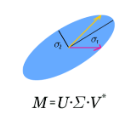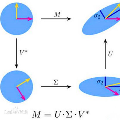We propose a novel conflict resolution framework for IoT services in multi-resident smart homes. The proposed framework employs a preference extraction model based on a temporal proximity strategy. We design a preference aggregation model using a matrix factorization-based approach (i.e., singular value decomposition). The concepts of current resident item matrix and ideal resident item matrix are introduced as key criteria to cater to the conflict resolution framework. Finally, a set of experiments on real-world datasets are conducted to show the effectiveness of the proposed approach.
翻译:我们为多居民智能之家的IoT服务提出了一个新的冲突解决框架。拟议框架采用基于时间接近战略的优惠提取模式。我们使用基于要素化的矩阵化方法(即单值分解)设计了优惠汇总模式。目前常住项目矩阵和理想常住项目矩阵的概念被引入为符合解决冲突框架的关键标准。最后,对真实世界数据集进行了一系列试验,以显示拟议方法的有效性。





